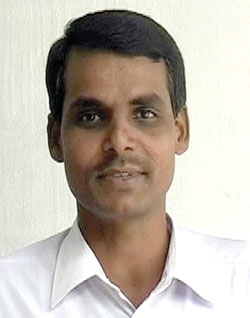 Last Tuesday, hundreds of journalists rightly condemned the murder by Maoist cadres of Avenues TV reporter Birendra Kumar Sah. Chanting slogans, the journalists demanded that the Maoists issue a public apology and punish the guilty.
Last Tuesday, hundreds of journalists rightly condemned the murder by Maoist cadres of Avenues TV reporter Birendra Kumar Sah. Chanting slogans, the journalists demanded that the Maoists issue a public apology and punish the guilty.
Outraged though I was by Sah's murder, I was also troubled by the journalists' uncritically recycled demands. These are 'uncritically recycled demands' because they do nothing to reduce the real risks that non-Kathmandu-based journalists face from the Maoists and the government when carrying out their tasks of collecting information for the public.
Take the issue of tendering an apology. The journalists should not have to beg for an apology, especially days after the news of Sah's murder became public. The Maoists should have tendered it by themselves as soon as they found out they had blood on their hands. But they did not.
Instead, their party leaders maintained an icy silence. Others stayed above the fray, as though riff-raff not known to them had committed the crime. Still others, in a classic exploit-every-advantage manner, wanted credit for at least initiating an internal investigation of the circumstances that led to the murder.
Given these harsh realities, only a fool continues to insist that an apology now, however reluctant and stale, will somehow reduce the risks for Nepali journalists. Besides, even if the Maoists' apology does come, that will do little for Sah's grieving wife, who now has to get on with the lonely business of living her life to take care of her child. Yes, there was that moment for a genuinely remorseful apology. But it came and went. And the sooner the protesting journalists accept this and start looking for an alternative solution, the better it will be for the dignity of their profession.
Take, too, the issue of 'punishing the guilty'. Of course, the guilty should be punished. But without giving in to cynicism, let's be realistic. When was the last time you heard about the guilty being punished in Nepal? Years go by before it's even clear who the guilty is, let alone where the guilty is. And with the passage of time, details of every crime recede from public memory. This makes the task of rounding up the suspects all the more difficult. Given court backlogs, the phrase 'punish the guilty' has come to carry little practical weight in Nepal.
But that does not mean the journalists should look to the Maoists for justice. After all, beware the absurdity that such a response leads to: If the Maoists' idea of punishing an innocent person is to murder him, then what could possibly be their idea for punishing the guilty?
And so these shrill demands for an apology and justice have distracted the journalists from asking a far more important, if awkward, question: Just how much is a journalist's life worth in Nepal in plain monetary terms? To answer this question, a segment of journalists should be busy interacting with domestic and foreign economists, insurance executives, lawyers and bankers to work out a formula for appropriately 'valuing' each working journalist's life. This has become an urgent task, especially with the National Human Rights Commission saying this week that there has been no significant improvement in the human rights situation in Nepal since November 2006. Meaning? Journalists and others are still in risk.
Once the formula for valuing a journalist's life is worked out, then effective protests can begin the moment a journalist is hurt. The perpetrators or their political parties have to pay that much money in cold, hard cash to the victim's family. After all, doling out huge sums of money every time a journalist is hurt may make the killers realize that murdering a journalist is a literally unaffordable activity.



